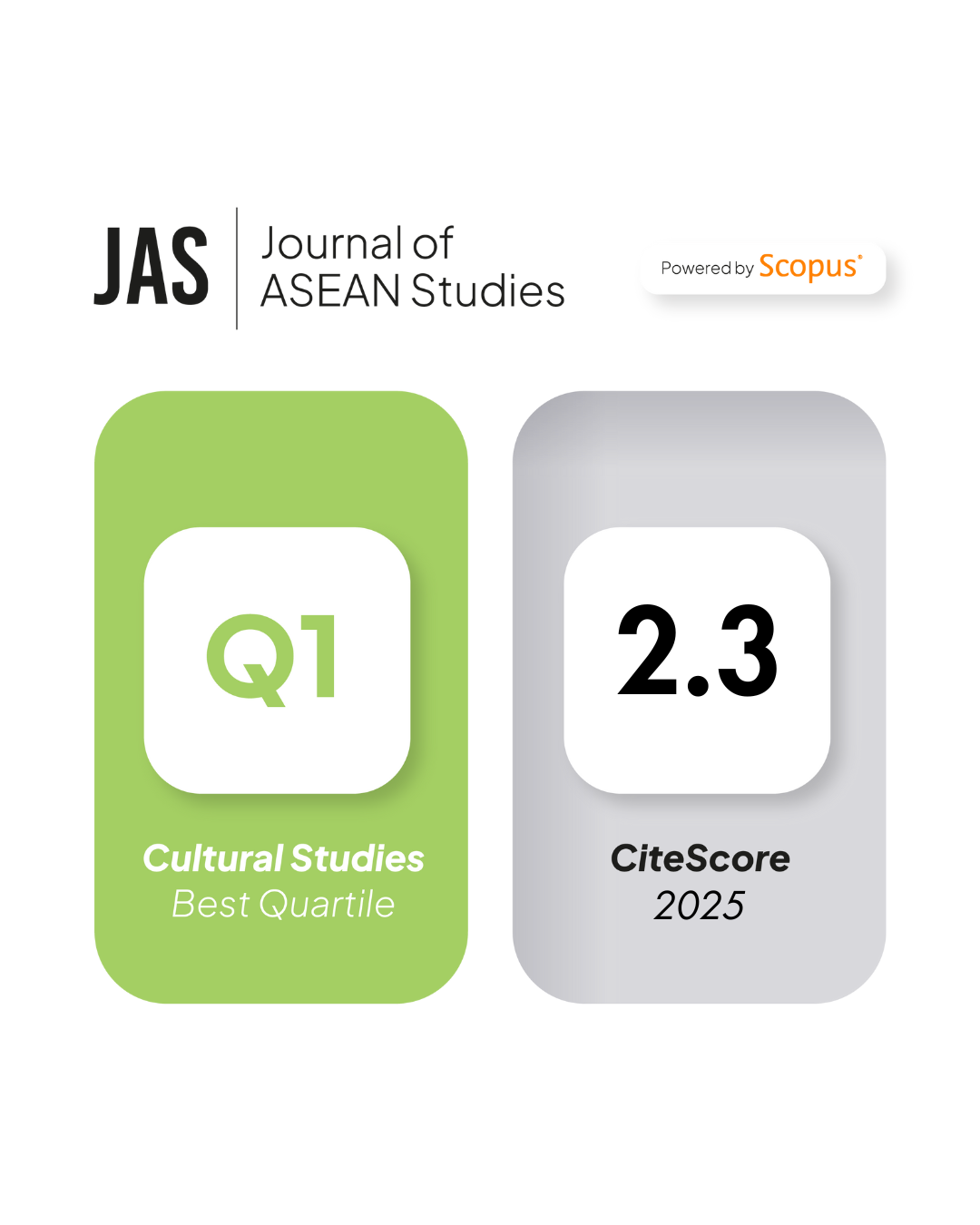Explaining the Fast-Growing Textile and Garment Industries (TGI) in Vietnam (2000-2015)
DOI:
https://doi.org/10.21512/jas.v5i2.4508Keywords:
Textile, Garment, Vietnam, Global Commodity Chains, Industrial UpgradingAbstract
The goal of this research is to explain the fast-growing textile and garment industries (TGI) in Vietnam from 2000 to present. This research is important in the context of Indonesia’s competition with Vietnam as among top TGI exporters in the world. This research adopted Gereffi’s Global Commodity Chains (GCCs) framework which situates TGI under the category of buyer-driven chains. Under this category, actors interested in industrial upgrading must develop both forward (marketing) and backward (production) linkages and learning process between this continuum. This research found that Vietnam’s fast growing textile and garment industries from 2000-present represents its successful industrial upgrading through its learning process in developing forward and backward linkages. Following these findings, therefore, Indonesia as competitor must also develop similar attitude and learning process in both linkages.References
AFTEX. (2010, August 11). Vietnam Textile and Apparel Industry Profile. Retrieved October 13, 2012, from AFTEX ASEAN Federation of Textile Industries: http://sourceasean.com
APO. (2012). APO Productivity Data Book 2012. Tokyo: Keio University Press.
ASEAN Secretariat. (2010). ASEAN Community in Figures 2010. Jakarta: ASEAN Secretariat.
ASEAN Secretariat. (2012). ASEAN Community in Figure 2010. Jakarta: ASEAN Secretariat.
China Economic Review. (2011, May 1). Splitting Stitches. Retrieved October 19, 2012, from China Economic Review: http://www.chinaeconomicreview.com
CIEM. (2010). Impact of International Economic Integration on Vietnam's Economy After Three Years of WTO Membership. Report, Hanoi.
Fukase, E. (2012). Export Liberalization, Job Creation and the Skill Premium: Evidence from the US-Vietnam Bilateral Agreement. World Dvelopment. doi:http://dx.doi.org/10.1016/j.worlddev.2012.05.035
Gereffi, G. (1999). International Trade and Industrial Upgrading in Apparel Commodity Chain. Journal of International Economics 48, 37-70.
Goto, K., Natsuda, K., & Thoburn, J. (2011). Meeting the Challenge of China: the Vietnamese Garment Industry in the post MFA era. Global Networks, 11(3), 355-79.
Institute of Economics. (2001). Trade Liberalization and Competitiveness of Selected Manufacturing Industries in Vietnam. Hanoi: Institute of Economics.
Nguyen, C., & Le, Q. (2005). Institutional Constraints and Private Sector Development: The Textile and Garment Industry in Vietnam. ASEAN Economic Bulletin, 22(3), 297-313.
Phong, D., & Thong, N. (2008). Review of The Textitle Coloration Industry in Vietnam. Coloration Technology(124), 331-340.
Simones, M. R. (2005, June). Made in Vietnam: American Apparel and Textile Firms' Operations in Vietnam. Ohio: Ohio University.
Tran, A. N. (1996). Through The Eye of The Needle: Vietnamese Textile and Garment Industries Rejoining The Global Economy. Crossroads: An Interdisciplinary Journal of Southeast Asian Studies, Vol. 10, No.2, 83-126.
Vietnam Chamber of Commerce & Industry. (2012, October 17). Textile and Garment Industry Powered By FDI. Retrieved October 17, 2012, from Vietnam Chamber of Commerce and Industry: http://vccinews.com
Vinatex. (2011, September 17). Top 20 Countries Export Textile and Garment to EU. Retrieved October 13, 2012, from Vietnam Textile and Apparel Portal: http://www.vietnamtextile.org.vn
VITAS. (2011, January 20). US Textile and Apparel Imports 2010 (Origins). Retrieved October 20, 2012, from Vietnam Textile and Aparel Portal: http://vietnamtextile.org.vn
World Bank. (2011). Foreign Direct Investment, Net Inflows (% of GDP). Retrieved October 18, 2012, from The World Bank: http://www.worldbank.org
Wright, J., Sahni, M., & Zamora, R. (2011). Wage Increases in China: Should Multinationals Rethink Their Manufacturing and Sourcing Strategies? Accenture.
WTO. (2011). International Trade Statistics 2011. World Trade Organization.






















